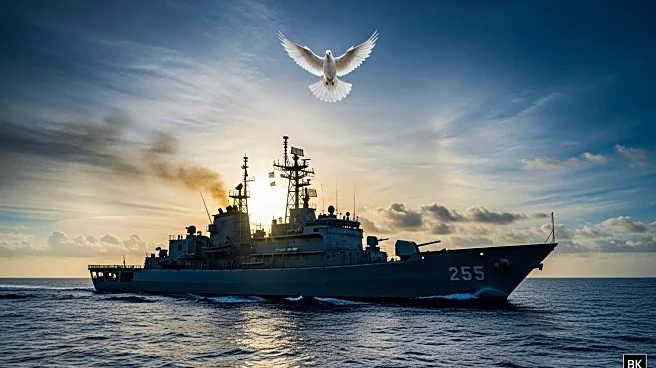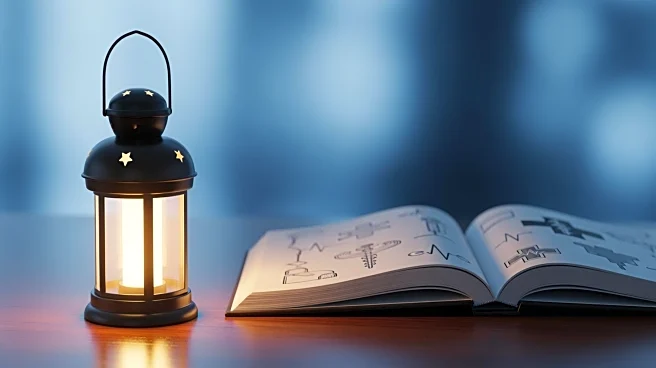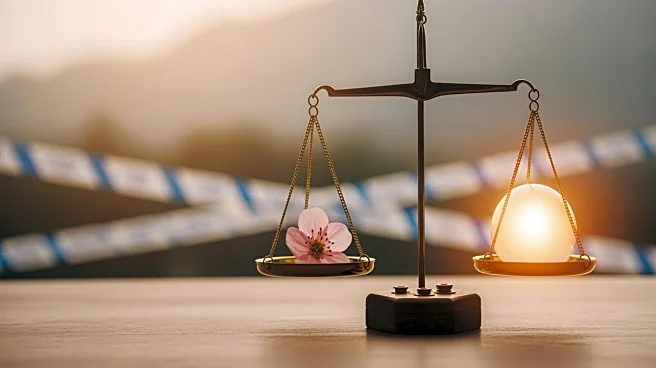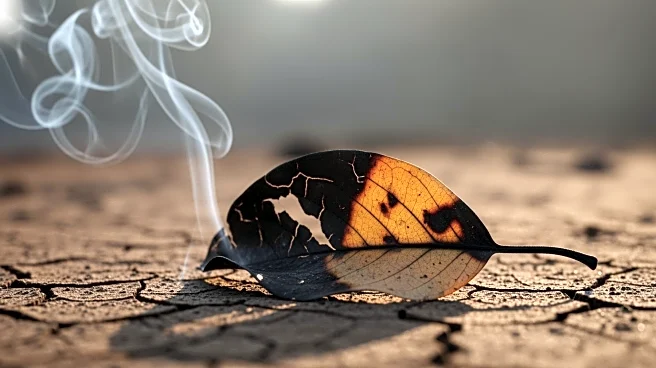What's Happening?
Israeli forces have intercepted 19 boats from the Global Sumud Flotilla, which was carrying foreign activists and aid intended for Gaza. Despite this, approximately 30 boats continue their journey towards the Palestinian enclave. The flotilla, consisting of over 40 civilian boats with around 500 parliamentarians, lawyers, and activists, aimed to deliver medicine and food to Gaza. The mission has drawn international attention, with countries like Turkey, Spain, and Italy monitoring the situation. The Israeli foreign ministry confirmed that Swedish climate activist Greta Thunberg was among the passengers, stating that all were safe. The flotilla's organizers have condemned the interception as a 'war crime,' alleging the use of aggressive tactics by Israeli forces, including water cannons. Israel maintains that its actions are legal, citing the need to enforce a blockade against Hamas militants.
Why It's Important?
The interception of the flotilla highlights ongoing tensions surrounding the Israeli blockade of Gaza, which has been a point of international contention. The blockade is intended to prevent arms from reaching Hamas, but critics argue it exacerbates the humanitarian crisis in Gaza. The involvement of high-profile activists like Greta Thunberg brings additional global scrutiny to the situation. Countries such as Turkey and Spain have criticized Israel's actions, potentially straining diplomatic relations. The incident underscores the complex geopolitical dynamics in the region, with implications for international law, human rights, and regional stability. The continued blockade and military actions may further impact the humanitarian situation in Gaza, affecting the lives of its residents.
What's Next?
The flotilla organizers have vowed to continue their mission, despite the interception. International reactions may lead to diplomatic discussions or interventions, particularly from countries with nationals involved in the flotilla. Israel's stance on maintaining the blockade is likely to persist, but the incident may prompt renewed calls for a reassessment of the blockade's humanitarian impact. The situation could lead to further protests or actions by international activists, potentially escalating tensions. Monitoring of the remaining boats by international observers may continue, with possible diplomatic efforts to mediate the situation.
Beyond the Headlines
The interception raises questions about the legality and ethics of blockades in conflict zones. It also highlights the role of international activism in drawing attention to humanitarian issues. The involvement of diverse international actors, including parliamentarians and lawyers, suggests a broader coalition of support for Gaza, which could influence future diplomatic and humanitarian efforts. The incident may also impact public opinion and policy discussions regarding the Israeli-Palestinian conflict, particularly in countries with significant activist involvement.









